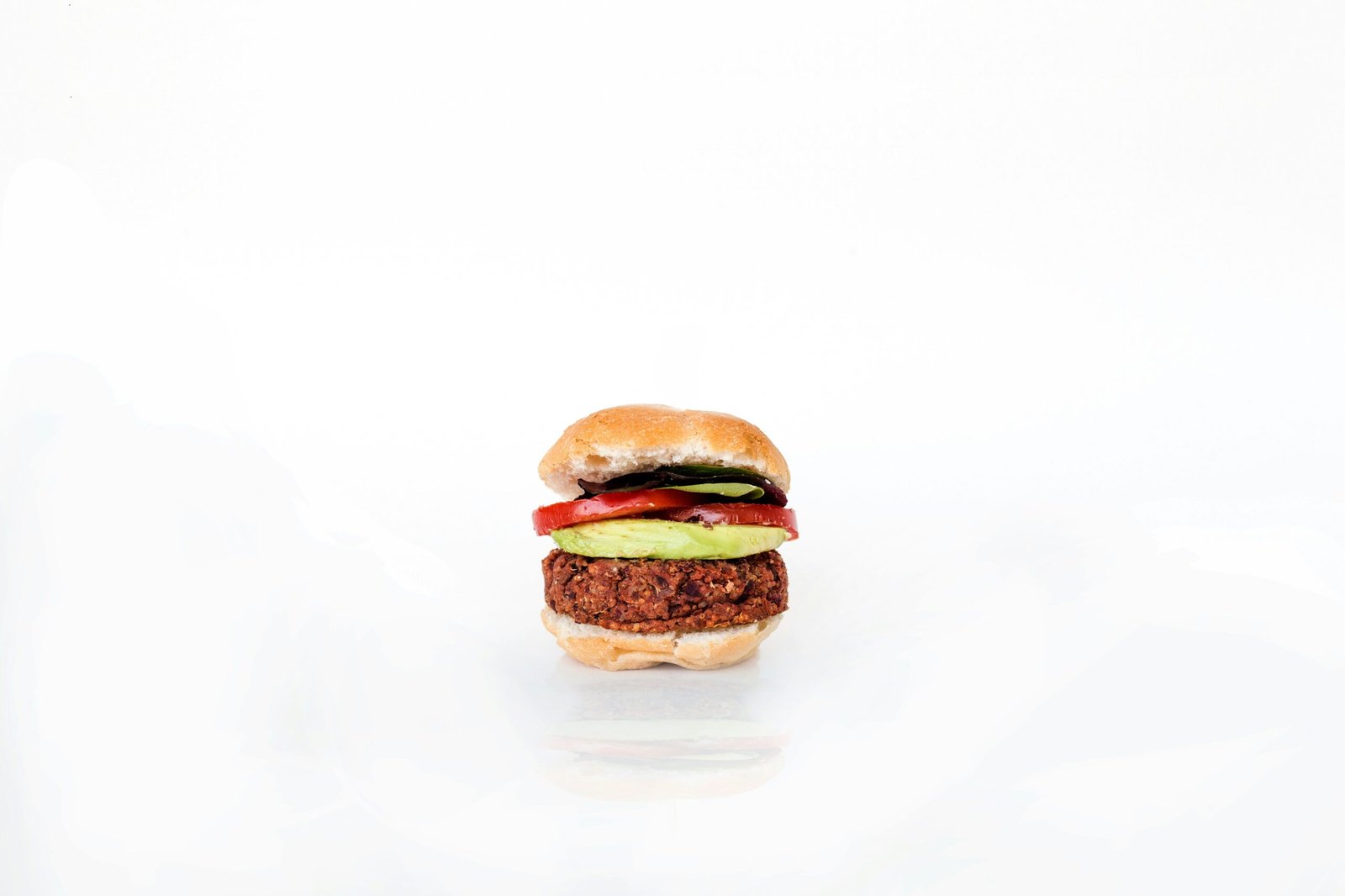Clean Eating: What It Is and How to Start
Introduction to Clean Eating
Clean eating is a dietary philosophy that emphasizes the consumption of whole, minimally processed foods, aligning with the core principles of health and wellness. At its essence, clean eating encourages individuals to nurture their bodies by opting for foods that are as close to their natural state as possible. This involves choosing fresh fruits, vegetables, whole grains, lean proteins, and healthy fats while minimizing the intake of refined sugars, artificial additives, and heavily processed items.
The primary objective of clean eating is to promote better health through informed food choices. This lifestyle is not merely a diet; it represents a holistic approach to nutrition that prioritizes the quality of food over quantity. By embracing clean eating, individuals can sustain their energy levels, enhance their immune functions, and improve overall well-being. This practice encourages mindfulness in eating habits, allowing individuals to appreciate the flavors and nutritional benefits of whole foods, ultimately leading to a more satisfying and healthful lifestyle.
Furthermore, adopting a clean eating lifestyle can significantly impact one’s physical and mental health. Whole foods are rich in essential nutrients that support bodily functions and mental clarity. By focusing on nutrient-dense options, individuals may experience improvements in mood, digestion, and weight management. The philosophy behind clean eating fosters a positive relationship with food, as it encourages awareness and intentionality in food selection, steering clear of the common pitfalls of modern nutrition trends that often lead to unhealthy eating patterns.
Incorporating clean eating principles into daily life offers substantial benefits, highlighting the importance of understanding what constitutes healthy nutrition. Through a commitment to whole foods and a conscious effort to avoid processed alternatives, individuals can pave the way to a healthier lifestyle, underscoring the significance of clean eating in today’s society.
The Benefits of Clean Eating
Clean eating encompasses a dietary approach that focuses on consuming whole, minimally processed foods while avoiding refined or artificial ingredients. This way of eating offers a multitude of health benefits that can significantly enhance overall well-being. One of the primary advantages of clean eating is its positive impact on digestion. Whole foods, rich in fiber, support gut health by promoting regular bowel movements and facilitating the growth of beneficial gut bacteria. This improved digestion can alleviate common digestive issues such as bloating and constipation.
Another notable benefit is the enhancement of energy levels. Clean foods are typically packed with essential nutrients, promoting sustained energy throughout the day. Unlike processed items that can lead to energy spikes and crashes, nutrient-dense foods provide a steady supply of fuel, enabling individuals to maintain focus and productivity. Additionally, incorporating clean foods plays a vital role in effective weight management. By prioritizing whole foods and minimizing refined sugars and unhealthy fats, individuals are more likely to consume fewer empty calories, leading to healthier body composition and weight loss.
Beyond physical health, clean eating positively influences skin health as well. Consuming a diet rich in antioxidants, vitamins, and minerals can help maintain a youthful appearance by reducing inflammation and promoting collagen production. Foods such as fruits, vegetables, and healthy fats are instrumental in achieving a clear complexion and fighting signs of aging.
Moreover, clean eating is linked to improved mental well-being. The nutrients found in whole foods can enhance brain function and mood regulation, potentially reducing the risk of anxiety and depression. The cumulative effect of these benefits contributes to overall longevity, as adopting a clean eating lifestyle fosters healthier habits that are sustainable over time. By prioritizing nutrient-rich foods, individuals can enjoy a higher quality of life as they age.
Key Principles of Clean Eating
Clean eating is a lifestyle approach focused on consuming whole, minimally processed foods. One of the foundational principles is the prioritization of whole foods, which include fruits, vegetables, whole grains, lean proteins, and healthy fats. These foods are usually in their most natural state, preserving their nutrients and health benefits. By emphasizing whole foods, individuals can promote better overall health and well-being.
Another critical aspect of clean eating is the importance of reading food labels. This practice enables individuals to understand the ingredients in packaged foods and to identify any additives, preservatives, or artificial ingredients that can detract from a clean diet. Clean eaters should aim for products with minimal ingredients, ideally those that are recognizable and can be found in a typical kitchen. Awareness of food labels fosters informed choices and encourages people to select items that align with their health goals.
Avoiding processed foods is also a significant principle of clean eating. Processed foods are often high in added sugars, unhealthy fats, and artificial ingredients, making them less nutritious than whole foods. By reducing or eliminating processed foods from one’s diet, individuals can maintain better energy levels and overall health. Additionally, a vital aspect of clean eating focuses on mindful portion sizes. Paying attention to serving sizes aids in achieving a balanced diet while preventing overeating.
Lastly, incorporating seasonal and local foods into one’s diet supports clean eating principles. Seasonal foods are often fresher and more flavorful, while local foods typically have a lower environmental impact due to reduced transportation distances. By choosing seasonal and local options, individuals not only enhance their clean eating journey but also support their local economy and promote sustainability.
Common Misconceptions About Clean Eating
Clean eating is often surrounded by various myths and misunderstandings that can mislead individuals seeking to improve their dietary habits. One of the most pervasive misconceptions is that clean eating is synonymous with an overly restrictive diet. Many people believe that adopting a clean eating lifestyle requires eliminating entire food groups, such as carbohydrates or fats, which can create the impression that it is not sustainable in the long run. In reality, clean eating emphasizes moderation and balance rather than strict deprivation. It encourages the consumption of whole foods while allowing for occasional indulgences, thus promoting a healthier relationship with food.
Another common misunderstanding pertains to the perceived expense of clean eating. Individuals often think that adopting a clean eating lifestyle necessitates purchasing expensive organic products and specialty items. While organic foods can be beneficial, clean eating is fundamentally about choosing whole, unprocessed foods, which can often be found at reasonable prices. Staples such as grains, legumes, fruits, and vegetables can be acquired without breaking the bank. Shopping seasonally or at local markets can further enhance accessibility, making clean eating a practical option for many.
Moreover, some believe that clean eating is a trend exclusive to those with advanced culinary skills or significant time for meal preparation. Contrary to this belief, clean eating can be easily integrated into a busy lifestyle. Simple techniques such as meal prepping and using one-pot recipes can facilitate a clean eating approach without requiring exhaustive time commitments or elaborate cooking methods. By debunking these common misconceptions, it becomes clear that clean eating is an inclusive, approachable, and beneficial dietary regimen that can enhance overall well-being.
How to Start Clean Eating: A Step-by-Step Guide
Embarking on a clean eating journey involves several practical steps aimed at transforming your dietary habits. The first step is to create a meal plan. This plan should focus on incorporating whole foods that are minimally processed, such as fruits, vegetables, lean proteins, whole grains, and healthy fats. Begin by setting aside time each week to map out your meals. This will help you stay organized, reduce food waste, and avoid last-minute unhealthy choices.
The next step involves grocery shopping. Make a list based on your meal plan and stick to it as much as possible. When navigating the supermarket, aim to shop the perimeter of the store where fresh produce, meats, and dairy are typically located. This strategy helps you avoid the heavily processed items usually found in the center aisles. Additionally, consider shopping at local farmers’ markets for seasonal and organic options that align with clean eating principles.
Understanding nutrition labels is another essential aspect of clean eating. When you do purchase packaged foods, take the time to read the labels carefully. Look for products with short ingredient lists, avoiding those that contain artificial additives, preservatives, or excessive sugar. Familiarizing yourself with the recommended serving sizes and nutritional content will enhance your food choices and support healthier eating habits.
Lastly, consider making simple substitutions for common processed ingredients in your recipes. For instance, swap white rice for quinoa or cauliflower rice, use Greek yogurt instead of sour cream, or opt for whole grain pasta instead of regular pasta. These minor adjustments can significantly elevate the nutritional value of your meals while still satisfying your palate.
Implementing these actionable steps into your routine can set a solid foundation for a successful transition to clean eating. This gradual approach will help you cultivate lifelong habits centered around nutrition and well-being.
Creating a Clean Eating Meal Plan
Developing a clean eating meal plan involves careful consideration of food choices that promote overall health while meeting individual dietary needs. The foundation of clean eating emphasizes whole, minimally processed foods rich in nutrients, which can help you achieve a balanced diet. When constructing your meal plan, prioritize incorporating a variety of fruits, vegetables, lean proteins, whole grains, and healthy fats. This diverse range of foods not only provides essential vitamins and minerals but also supports optimal bodily functions.
To begin, outline a weekly plan that includes three main meals and snacks. For breakfast, options such as oatmeal topped with fresh berries and a sprinkle of nuts or a smoothie made with spinach, banana, and almond milk are excellent choices. Lunch could consist of a large salad filled with dark leafy greens, a protein source like grilled chicken or chickpeas, and a vinaigrette made from olive oil and lemon juice. For dinner, consider grilled fish served with quinoa and steamed broccoli, ensuring a balance between protein, carbohydrates, and vegetables.
Snacks play an important role in clean eating and can help maintain energy levels throughout the day. Healthy snack options include sliced vegetables with hummus, Greek yogurt with nuts and seeds, or homemade energy balls made from oats and nut butter. When preparing meals, cooking methods such as steaming, baking, grilling, or sautéing with minimal oil are preferred. It is also beneficial to prepare meals in advance to streamline the process and reduce the temptation to choose convenience foods that are often heavily processed.
Maintaining nutritional integrity is key in clean eating. Therefore, reading food labels, understanding ingredients, and being mindful of portion sizes will aid in making informed choices. By following these principles and keeping a well-structured meal plan, individuals can effectively transition to a clean eating lifestyle, which not only improves health but also enhances the overall quality of life.
Finding Support in Your Clean Eating Journey
Embarking on a clean eating journey can be both exciting and challenging. One of the most significant aspects of making this transition smoother is finding a supportive community. When you have like-minded individuals by your side, the journey to adopting cleaner eating habits becomes more enjoyable and manageable. Engaging in conversations with others can provide valuable insights and encouragement, which can make a substantial difference in staying motivated.
Consider exploring local groups or clubs focused on clean eating, where members share recipes, meal plans, and personal experiences. These gatherings often provide a platform for individuals to exchange tips and advice, helping each other navigate through potential hurdles. For those who prefer the convenience of virtual interactions, numerous online communities and forums cater to clean eating enthusiasts. Social media platforms are also rich with content creators who advocate for clean eating. Following these influencers can expose you to fresh ideas and their personal journeys provide relatable content that can inspire your own transformation.
Sharing your clean eating experiences with friends and family can also create a support network. Informing them about your goals may lead to unexpected encouragement or even partners that share your commitment to clean eating. Participating in meal prep sessions with a friend can make the process not only more efficient but also more enjoyable. Additionally, discussing challenges as they arise can help alleviate feelings of isolation or discouragement, as others offer advice based on their experiences.
Ultimately, finding support throughout your clean eating journey can significantly enhance your odds of success. By surrounding yourself with individuals who understand and prioritize the values of clean eating, you can build a strong foundation for a healthier lifestyle. The support offered by these connections is an invaluable resource that can help motivate you to stay on track while making the transition to a cleaner way of eating.
Overcoming Challenges in Clean Eating
Adopting clean eating habits can indeed present a range of challenges. One of the most common hurdles is navigating social situations. Whether it’s dining out with friends, attending family gatherings, or participating in celebration events, the presence of non-clean foods can lead to temptations. To mitigate this, consider planning ahead; research menus and suggest restaurants with healthy options or bring a clean dish to share at gatherings. Communicating your dietary preferences to friends and family can also pave the way for understanding and support.
Another significant challenge involved in maintaining clean eating is combating cravings. It is natural to experience cravings for processed foods high in sugar, salt, or unhealthy fats, particularly when transitioning from a more conventional diet. To address cravings, one effective strategy is to ensure your meals are nutrient-dense, providing your body with adequate vitamins, minerals, and healthy fats. Incorporating high-fiber foods, such as vegetables, fruits, and whole grains, can promote satiety and diminish the allure of unhealthy choices. Additionally, understanding that cravings often pass can also empower you to wait them out and resist undermining your clean eating goals.
Convenience food temptations frequently arise, especially with busy lifestyles that leave little time to prepare meals. Clean eating does not have to feel time-consuming. Preparing meals in advance, such as batch cooking and freezing healthy portions, can alleviate the stress of last-minute decisions that might lead you to choose unhealthy options. Utilizing kitchen gadgets like slow cookers or instant pots can make the preparation of healthy meals quick and easy. Finally, creating a clean eating pantry stocked with easy-to-access, nutritious ingredients can help facilitate healthier choices, even in a hurry.
By anticipating these challenges and employing strategic tactics, individuals can successfully navigate the complex journey of embracing clean eating habits without feeling deprived or overwhelmed.
Sustaining a Clean Eating Lifestyle
Maintaining a clean eating lifestyle goes beyond temporary dietary changes; it is essential to embed these practices into daily life permanently. To achieve this, individuals must focus on gradual habits instead of drastic shifts. Start by integrating wholesome, unprocessed foods into your meals and gradually minimizing processed options. This seamless transition not only proves sustainable but also ensures a rewarding experience as you cultivate a more health-conscious palate.
Staying motivated is a crucial aspect of adhering to clean eating long-term. One effective way to do this is by setting realistic and achievable goals. Instead of aiming for perfection, focus on small, manageable changes that can easily fit into your routine. For instance, including a fruit or vegetable with every meal can significantly boost your nutrient intake without overwhelming your dietary practices. Additionally, tracking your meals or journaling your thoughts may foster awareness and keep the motivation alive. Visual reminders, such as a vision board of your goals, can also serve to encourage commitment.
Flexibility is key when adapting to life changes. Events such as holidays, vacations, or even changes in personal circumstances may challenge your clean eating regimen. Allow yourself to indulge at occasions without guilt, remembering that balance is vital. Learning to navigate these shifts requires you to be kind to yourself and recognize that perfectly adhering to a clean eating plan is unattainable for everyone. Instead, focus on returning to your clean eating habits after such occurrences.
Ultimately, sustaining a clean eating lifestyle is about finding the right balance and being adaptable. Every individual’s journey is unique, and developing a plan that works for you allows for both enjoyment and health benefits. By acknowledging the importance of flexibility and motivation, embracing clean eating can become a sustainable lifestyle choice rather than a fleeting diet. In conclusion, when approached thoughtfully, clean eating can significantly enhance your life in the long run.







